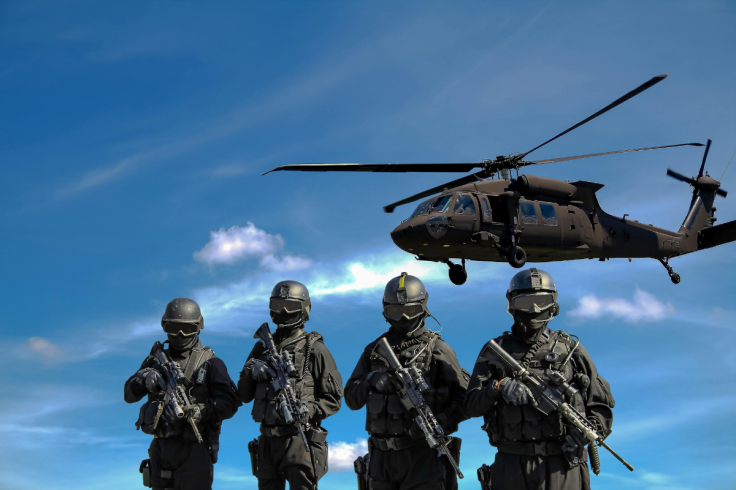After Iran, Is Taiwan Next? China Military, Russia Said To Combine Forces To Invade Asian Nation
Beijing considers Taiwan its territory, rejecting its democratic governance, and has not ruled out force to achieve 'reunification'.

As global attention shifts from the recent 12-day Israel-Iran conflict, NATO's outgoing Secretary General Mark Rutte has sounded a stark warning that China and Russia could join forces to support a potential Chinese invasion of Taiwan.
Speaking ahead of NATO's annual summit on 24 June 2025, Rutte highlighted the 'no limits' partnership between Beijing and Moscow, raising fears that Taiwan could be the next flashpoint after Iran.
'Confront China's Military Buildup'
China's rapid military expansion has alarmed NATO and its Indo-Pacific partners, including Japan and South Korea.
Rutte, as reported by The Telegraph on 24 June 2025, described China's buildup as 'massive', noting its growing naval, air, and missile capabilities designed to assert dominance over Taiwan.
Beijing considers Taiwan its territory, rejecting its democratic governance, and has not ruled out force to achieve 'reunification'.
Radio free Asia reported on 5 March 2025 that China's defence budget, officially increased it's defense budget to 7.2% in 2025, likely understates actual spending, fuelling concerns about its intentions.
Posts on X amplify these fears, with users like @yuuri_snowdrop citing reports of 600 Chinese soldiers training at Russian bases, suggesting shared military tactics from Russia's Ukraine invasion could be applied to Taiwan.
Anticipate Russia's Supporting Role
Rutte warned that in a Taiwan invasion, China might enlist Russia to 'keep Europe busy', potentially escalating tensions on NATO's eastern flank.
The Russia-China alliance, cemented by economic and defence cooperation, has deepened since their 2022 'no limits' pact.
The Daily Mail noted on 24 June 2025 that a wreath-laying ceremony in Moscow on 9 May 2025, attended by Xi Jinping and Vladimir Putin, symbolised their unity.
Russia's potential role could involve cyberattacks, disinformation, or even military distractions in Europe, leveraging its experience in Ukraine.
On X, sentiment is mixedsome users, like @Lenguyenphuocv1, speculate China may target Taiwan by 2027, while others argue Russia's stretched resources limit its ability to assist.
NATO's 3.5% GDP defence spending commitment by 2035, announced at the summit, aims to counter such threats.
Prepare for Global Repercussions
A Chinese invasion of Taiwan would shake global stability, given the island's role in producing 60% of the world's semiconductors.
Rutte emphasised that NATO's Indo-Pacific partners are 'very worried', as a conflict could disrupt £2.4 trillion ($3.2 trillion) in annual trade through the Taiwan Strait.
Reuters highlighted on 23 June 2025 that China's attack on Iran's Al Udeid Air Base during the Israel-Iran war shows its willingness to strike US-aligned targets, raising fears of broader escalation.
American deterrence and China's export reliance on the West make a full-scale invasion less likely, but coercive tactics, like blockades or cyberattacks, remain plausible.
NATO's summit discussions, muted on Russia to appease Trump, underscore the need for unified defence strategies to deter a Taiwan crisis.
Stay Vigilant to Avert War
Mark Rutte's warning on 24 June 2025 casts a spotlight on Taiwan as a potential next hotspot after the Israel-Iran conflict.
China's military buildup, backed by Russia's strategic support, threatens to destabilise the Indo-Pacific, with global trade and security hanging in the balance.
NATO's bolstered defence spending and partnerships with Japan and South Korea signal resolve, but diplomacy must take centre stage to prevent escalation.
As tensions simmer, the world must stay alert, Taiwan's fate could shape the future of global peace, and averting conflict demands unwavering vigilance.
© Copyright IBTimes 2025. All rights reserved.





















